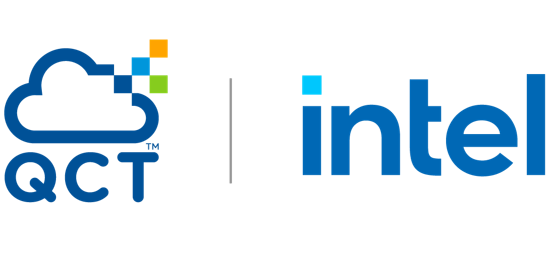“Pele” is the Exascale Computing Project’s application suite for high-fidelity detailed simulations of turbulent combustion in open and confined domains. The suite of C++-based codes comprises several repositories — PeleC (compressible solvers), PeleLM/LMeX (low-mach flow solvers), PelePhysics (thermodynamics, transport, and chemistry models), and PeleMP (multiphysics models) — that integrate block-structured adaptive mesh refinement (AMR) and cut-cell methods to simulate multifaceted combustion processes. Pele simulations provide the detailed physics and geometrical flexibility to evaluate the design and operational characteristics of clean, efficient, next-generation combustion technologies, including advanced ICEs for automotive, industrial, and aviation applications.
Let’s Talk Exascale: ALCF’s Katherine Riley Talks Aurora Deployment, Impactful Science and Partnering with ECP
In this episode of the “Let’s Talk Exascale” podcast, the Exascale Computing Project’s (ECP) Scott Gibson talks with Katherine Riley, director of science at the Argonne Leadership Computing Facility. Her mission is to lead a team of ALCF computational science experts who work with facility users to maximize their use of the facility’s computing resources. […]
Quantum Computing Users Work Alongside Classical Supercomputers: An Interview with Travis Humble at Oak Ridge Lab
As the high-performance computing (HPC) community looks beyond the brink of Moore’s Law for solutions to accelerate future systems, one technology at the forefront is quantum computing, which is amassing billions of dollars of global R&D funding each year. Perhaps it’s no surprise that HPC centers — including the Oak Ridge Leadership Computing Facility (OLCF), home of the world’s first exascale supercomputer, Frontier — are finding ways to leverage
Scientists Using Frontier Supercomputer Win 2022 Gordon Bell Prize, Another Frontier Team Named Prize Finalist
[SPONSORED CONTENT] How many researchers can say they’ve not only run their scientific job on the AMD-powered Frontier supercomputer, the world’s no. 1 ranked HPC system and the first exascale-class machine, but also on Fugaku, Summit and Perlmutter, the world’s second-, fifh- and eighth-ranked HPC systems in the world, respectively? But that’s the case with an interntional group of researchers working on particle-in-cell simulations who have developed code that won….
At SC22: ACM Gordon Bell Prize Awarded for Particle-In-Cell Simulations on Frontier, Fugaku, Summit and Perlmutter Supercomputers
New York, NY, November 17, 2022 – ACM, the Association for Computing Machinery, named a 16-member team drawn from French, Japanese, and US institutions as recipient of the 2022 ACM Gordon Bell Prize for their project, “Pushing the Frontier in the Design of Laser-Based Electron Accelerators With Groundbreaking Mesh-Refined Particle-In-Cell Simulations on Exascale-Class Supercomputers.” The members of […]
@HPCpodcast at SC22: An Analysis of the New TOP500 List
This special SC22 edition looks at the new TOP500 list of the world’s most powerful supercomputers, released today. It marks the 60th edition of the list, repesenting 30 years of systematic data on the highest performing computer architecture and configurations. While this TOP500 is not full of surprises, there’s a new no. 1 at the top of the GREEN500, and across all the categories of the list there’s always important historical data and valuable tea leaves pointing to future trends….
TOP500: Frontier Maintains Big Lead, Europe at Nos. 3 and 4, China Quiet
The new TOP500 list of the world’s most powerful supercomputers, released today at the SC22 conference in Dallas, while short on surprises underlines several significant HPC trends. First the headline: the HPE-built, AMD-powered Frontier system, which was crowned the world’s first exascale-class system when the previous TOP500 list was released last spring, remains at the top of the list, delivering nearly three times the power of its nearest rival on the list. Frontier remains at 1.102 exaFLOPS….
@HPCpodcast: UC Berkeley’s and LBNL’s Kathy Yelick on Exascale, the Future of Supercomputing, Partitioned Global Address Space and Diversity in HPC
Today, on the eve of Exascale Day, the @HPCpodcast is delighted to have Kathy Yelick as our special guest to observe Oct. 18 (1018 – a billion billion calculations per second). Dr. Yelick is the Robert S. Pepper Distinguished Professor of Electrical Engineering and Computer Sciences and the Vice Chancellor for Research at UC Berkeley, and Senior Faculty Scientist at Lawrence Berkeley National Laboratory.
Aurora on Schedule? Intel Says it’s Shipping Ponte Vecchio-Sapphire Rapids Blades to Argonne
The rumors had begun to cirulate – October is near, that starts the fourth quarter, 2023 isn’t far behind, all of which means Intel is coming up against a hard deadline to deliver its delayed Aurora exascale-class supercomputer to Argonne National Laboratory by the end of the year. Is another delay in the offing?
Then, yesterday, Intel tweeted this out: “Server blades with Intel 4th Gen Xeon and Ponte Vecchio, which uses Intel’s most advanced IP and packaging technology, are now shipping to Argonne National Labs to power the Aurora supercomputer!” And the tweet was backed by comments to the same effect from CEO Pat Gelsinger
@HPCpodcast: On the Scene at ISC 2022 – HPE, AMD Make TOP500 News; Intel Makes News of Its Own
ISC 2022 in Hamburg was notable for a number of reasons – it was not only the first in-person ISC since 2019, it also provided a plethora of major news. This included big changes at the top of the TOP500 list of the world’s most powerful supercomputers, and the Frontier HPC system at Oak Ridge National Lab surpassing of the exascale milestone. While AMD, whose chips power Frontier, and HPE, which built Frontier, were the conference’s spotlight vendors, Intel also made some impressive product announcements, as analyzed in this discussion by Shahin Khan. You can find our podcasts at insideHPC’s @HPCpodcast page, on Twitter and at the OrionX.net blog. Here’s the RSS feed.











